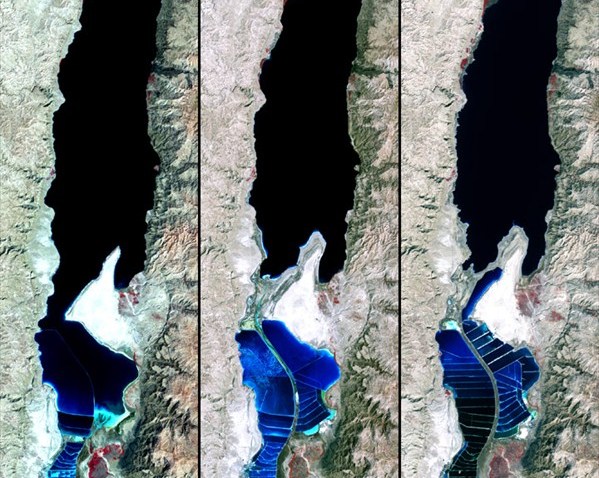For millennia, the Dead Sea has been fed by the sweet waters of the Jordan River while losing only pure water to relentless evaporation. The collected salts left behind have resulted in an inhospitably briny lake eight times saltier than the sea, topped by a thin layer of the Jordan's relatively less-dense fresh water. The differing salinity levels between the river and the lake kept the Dead Sea in a perpetually layered state, even while the lake's overall water level remained fairly constant, since evaporation from the lake's surface occurs at roughly the rate of the natural flow of the Jordan and other tributaries and springs. This delicate equilibrium was disrupted as modern nations—with all of their human and economic needs tied inexorably to the local supply of fresh water—built up along the Jordan River's shores. In this century, as more and more of the Jordan was diverted for the needs of these newly formed nations (Jordan, Syria and Lebanon, as well as Israel), the level of the lake began to drop, most recently by about one-half meter per year. Greater amounts of the shoreline were exposed, and the lake was cut in half by the Lisan Straits. The shallow southern half all but dried up, and the potash works and health spas built to take advantage of the lake's unique waters found themselves ever farther from the shore. Along with the drop in the lake's level came a relative rise in the pycnocline—the dividing line between the less saline surface water and its hyper-saline fossil base. The division between the two layers was finally eradicated briefly in the winter of 1978-9: For the first time in centuries, the Dead Sea "turned over." In a hydrologic protest against the loss of the Jordan River's flow, the Dead Sea effectively rolled over in its grave.
Troubled Waters: Conflict and Cooperation Over Shared Rivers

